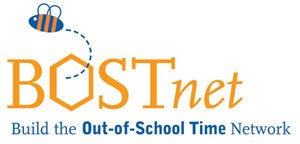Professionialism means disciplinary autonomy. A field of study (or any line of work) is a profession when its practitioners are answerable for the content of their work only to fellow practitioners, and not to persons outside the field.Can we honestly say this is the case with OST? The volume of research that highlights the value of OST and a distinct developmental setting for healthy youth development is impressive. Yet, so often we find programs that are set up to provide academic services or extended day supports for children and youth in struggling schools. This has as much to do with funding streams for OST programs as it does for providing the best services for students. The problem is that when these systems are created, practitioners find that they are less answerable to the OST field as they are to the formal education systems' desire for academic outcomes.
Over the past year in Massachusetts advocates for afterschool and OST have struggled to answer the question, "Is afterschool part of the education system?" The fact that this question is yet unresolved points to the fact that as a field, OST needs to strengthen its identity. OST clearly can be part of an education system. Informal learning, relationship-building, intentional activities and fun all have a place in the education and development of a child over time. Unfortunately, OST professionals and researchers do not have a place at the table when curriculum frameworks are created the way that science, math and english professionals do.
The problem is not linking schools and afterschools. In fact, there is evidence that a lot of good can come from integrating a child's learning experiences across multiple contexts in their day. The problem is when programming is structured around educational remediation rather than the expectations and goals of youth development. Within the formal education system, the fields of science, math and english retain their professional autonomy. It does not seem out of line to think that youth development should also maintain a level of professional autonomy to work with children and youth in ways the field recognizes as valuable.

1 comment:
The issue may in part be that not everyone can see the difference between "education" which has evolved into a system with certain expectations and formulas, institutional structures and state support, and "learning" a natural process of acquiring skills of many kinds (social, emotional, and survival). Many practitioners see OST as a field where young people learn, but themselves draw a line between their learning and academics. This seems a failure of imagination on the part of many adults who have learned to think far too segmented about the day and not see that structured and unstructured learning need to occur in the daily lives of children and youth.
Post a Comment